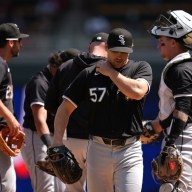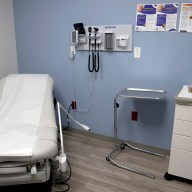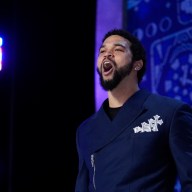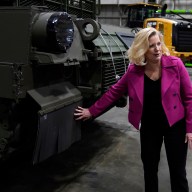 Dealing with North Korean security.
Dealing with North Korean security.
Credit: worldbybike.com
Best known for gulags, dictatorship and secrecy, the ‘Hermit Kingdom’ is not an obvious choice for a road trip. But those warning signs served as motivation for New Zealander Gareth Morgan, who has completed the first pan-Korean motorcycle ride with his wife and friends.
“I’ve been working on it since 2006,” explained the 60-year-old economist-turned-adventurer by Skype from South Korea, recounting the marathon of bureaucracy he endured to make the four-week trip happen.
While planning a round-the-world ride, Morgan met with a North Korean friendship society in New Zealand, who obtained an invitation to Pyongyang to go and pitch to government officials. “I told them I wanted to ride the mountain range that is the backbone of the Korean peninsula and remind the world about the one-third of the Korean population that live in the North, and their 5,000-year-old nation.”
Over several years a route was agreed with the co-operation of South Korea and the UN, including a historic agreement to allow the five riders through the Demilitarized Zone (DMZ) that has separated the Koreas for 60 years.
The riders faced difficulties entering the country from Siberia. Russian authorities demanded a huge fee for the 2-kilometer train ride and had many conditions to allow the motorbikes passage.
When they were finally allowed to travel, North Korean security confiscated their passports. Remarkably, it signaled a change in fortunes. “They said, ‘You don’t have to go through customs, you’re special’,” recalls Morgan.
Set free on the route hugging the Baekdudaegan mountain range, Morgan was “blown away” by the difference between rumor and reality. “We always hear about extreme poverty but there is only famine if the crops fail and this year the harvest was good. The villages were in good shape and the people were well dressed – lots of women were in the fields wearing heels. We were definitely the scruffiest people around.”
While the riders had a security escort, they were allowed to mingle with local people. They were invited to a beach party, and enjoyed a 13-course meal usually reserved for the highest rank of VIP.
“The message I was getting was that they didn’t want isolation, and hoped it would be better for their children. They are terrified that the US could invade at any minute as they are always hearing about military exercises on the border.”
The party stopped at the DMZ, where poor planning almost caused disaster. “The crossing had no vehicle access on the southern side so they had to change the plan. The North Koreans went crazy because they had to get new permissions for a different area. They worked all day on a public holiday to pull it off.”
When the two heavily-armed sides, with the riders, reached the meeting point in no man’s land, the North Koreans were suspicious that their enemies were playing games. “They didn’t know what was happening but they left us food and water if we had trouble. It was quite an emotional goodbye. But when we reached the crossing there were US soldiers who welcomed us warmly and said ‘we didn’t think this had a hope in hell.’”
The riders would receive the same reaction in the South, but Morgan is encouraged to believe there is enough desire for peace on both sides to make progress, and holds the US and China responsible. “It’s a frontier between the superpowers – it’s not the Koreans’ issue. I tell the South Koreans, ‘When I go North again I’m taking you with me’.
















